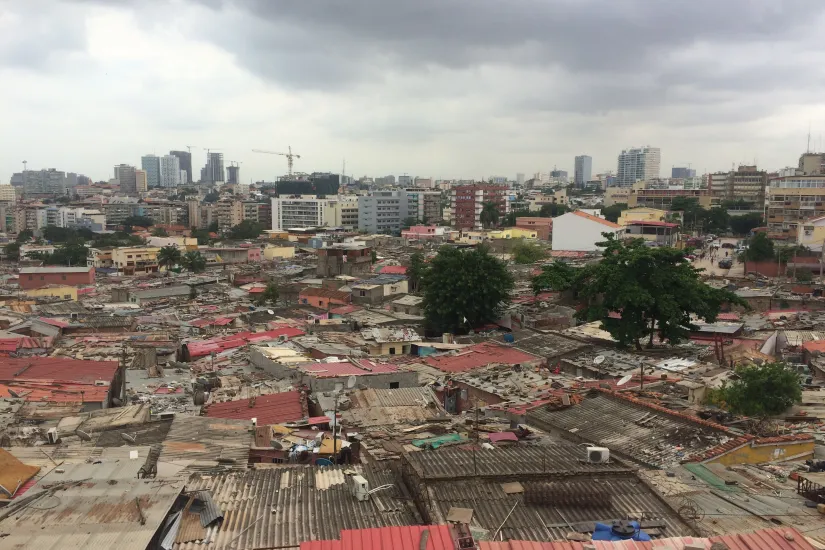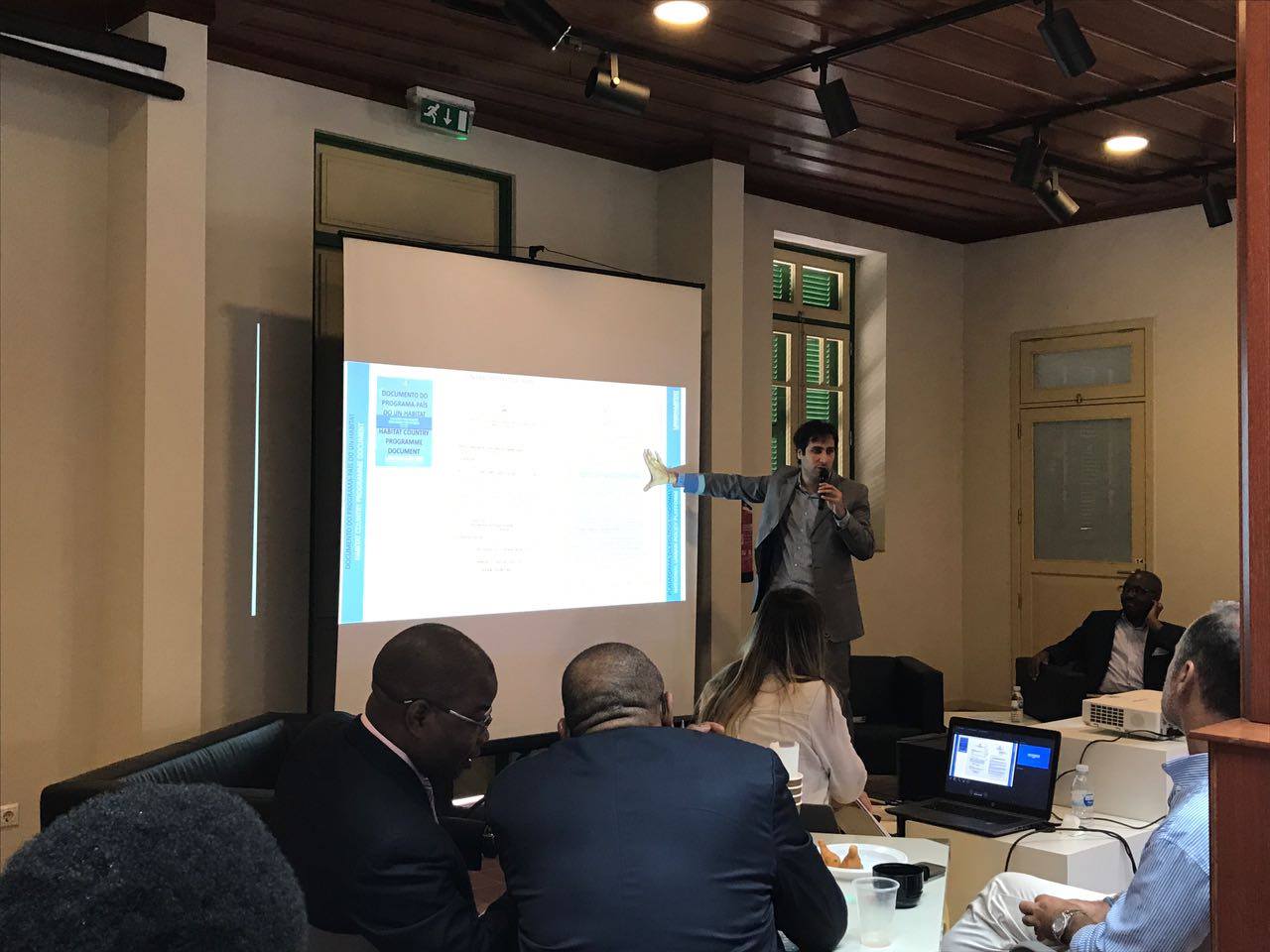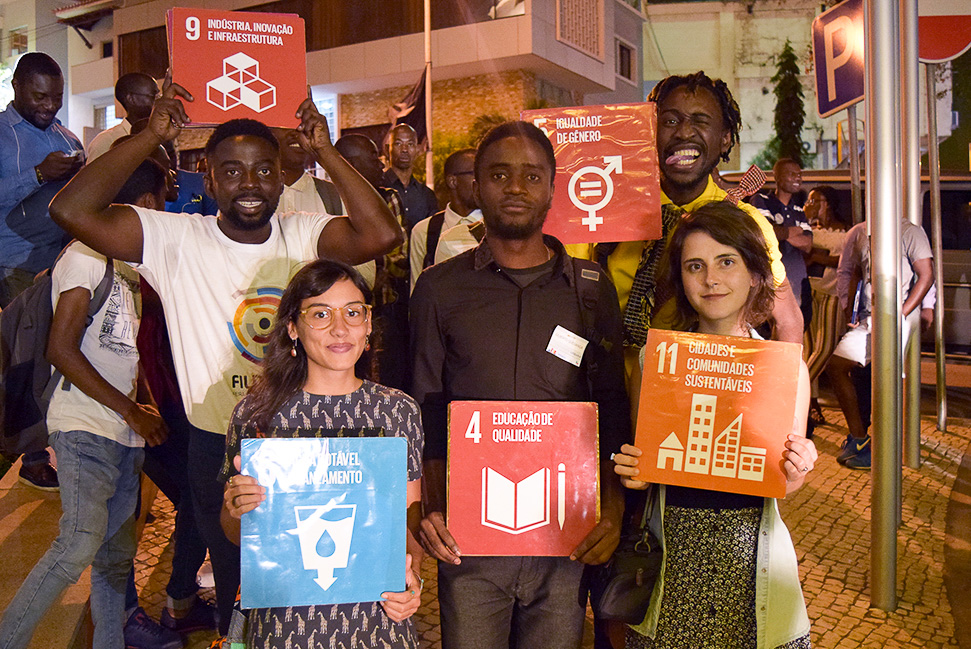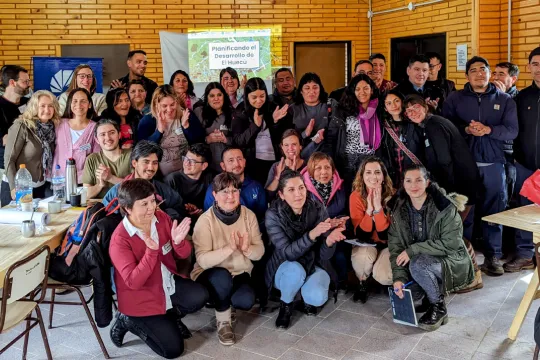
Luanda, Angola, UN-Habitat
Introduction
The project aimed to create a strategic framework for the implementation of the New Urban Agenda in Angola, determining the main challenges and opportunities of the country. A set of possible interventions is listed, through pilot projects proposed by UN-Habitat for 2018-2022, in order to support the United Nations and the Government of Angola in achieving the objectives agreed in UNPAF.
Context and background
According to the National Institute of Statistics (INE), Angola's urban population reached 62.6% in 2014. The majority of the urban population is concentrated in coastal cities, especially Luanda, Benguela, and Cabinda, with high exposure to the effects of climate change. Also, despite massive governmental investments on housing and urban infrastructure since the early 2000s, the urbanisation process resulted mainly from an informal occupation of land. The biggest urban agglomerations are: Luanda, with 41.9% of the total urban population; Benguela-Catumbela-Lobito, Lubango, Huambo, and Cabinda. These cities concentrate almost 60% of the total urban population of Angola and 37.1% of the country’s total population.According to the Census 2014, 87.2% of the private-owned urban housing stock of Angola result from self-construction, 57.2% of urban households have access to safe water, 81.8% have access to proper sanitation facilities, 50.9% have access to electricity and only 37.5% benefit from an adequate solid waste management system.
Plan and process

The PNOTU aims to guide Angola's territorial and urban development by 2036 so that this development takes place within the principles set forth in its Constitution, promulgated in 2010, in the New Urban Agenda.
The diagnosis of the PNOTU took into account three dimensions: (i) legal, (ii) institutional and (iii) programmatic (or socio-economic, spatial and financial). The content of the PNOTU is divided into four parts: the first three parts are the characterization and analysis and discussion of each dimension, described above, of the Policy and the last part is compiled from the recommendations that can be extracted from the analysis and discussion established in each dimension of the policy.
The PNOTU recommendations are based on seven pillars, namely (1) territorial and urban planning, (2) land management, (3) municipal finances and city prosperity, (4) social inclusion and poverty eradication in cities, (5) sustainability and territorial and urban resilience, (6) territorial and urban governance and management, and (7) territorial and urban legislation.
All sub-recommendations have a structure that present methodologies and instruments for easy and immediate implementation, considering the priorities of the country.

Resource for the development of Our City Plans
While developing the analysis e diagnostic, many aspects related to planning process was highlighted and the integration of social-economic and territorial planning instruments was simplified and systematised in the Recommendations of Territorial and Urban Planning through the Municipal Master Plans.
Our City Plans incorporated some of those lessons learned on this process, specifically the simplification of the planning process. PNOTU foresaw participatory mapping and the simplificalization of zoning and sustainable development structure, turned to steps included in the OCP methodology.

Results
Within the framework of PNOTU, a legal, institutional and socio-economic spatial diagnostic of the country has been developed to support territory and urban planning. In addition, the main policy guidelines and the implementation strategy of each recommendation were defined in line with the current country priorities.
National Housing Institute (INH)

